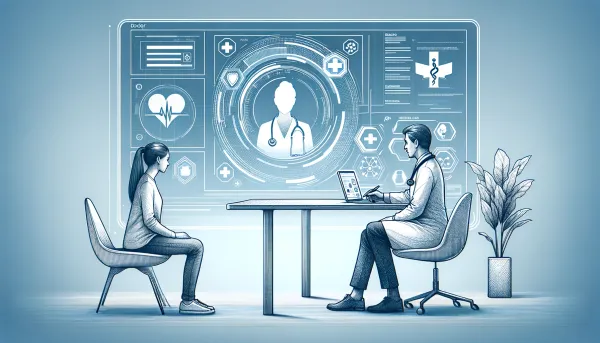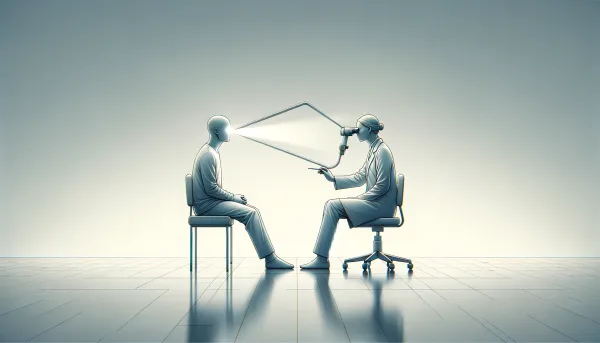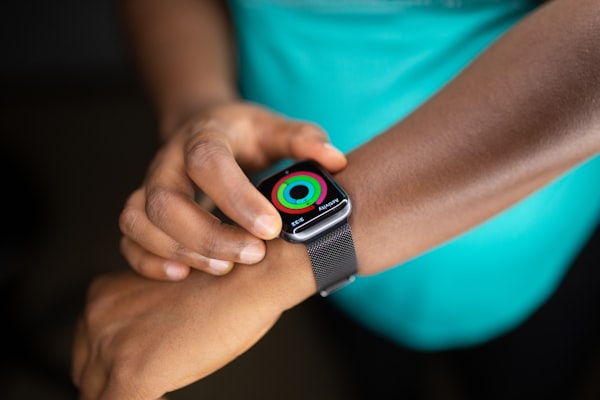Treating Insomnia and Autonomy On Call
An overview into how we can treat insomnia and how IBM is entering digital health by developing autonomous systems to help doctors be doctors.

I’m so excited that medicine and general news are slowly transitioning away from COVID-19. It makes writing this newsletter even more enjoyable. Then again it might be because I actively try to reduce the amount of news I read about COVID-19.
However, there have been some interesting reports on vaccine development at Oxford trials. They were published in The Lancet.
On an unrelated note, a paper has been published in The New England Journal of Medicine about coffee, caffeine and health. Good news for coffee lovers!
This issue features one of my favourite topics, which is sleep. This time with the focus on treating insomnia with drugs and other substances.
The second topic is also very exciting. I listened to a webinar on autonomous healthcare systems organised by Dell and made possible by Business Insider. I didn’t have many expectations about it, but it exceeded them multiple times.
By the way, I’ll be sharing more up-to-date content throughout the week as I’m planning on being more active on Twitter. This webinar was one of the tweets.
Treating Insomnia
Even though the amount of sleep has increased during the lockdown, slightly more anti-insomnia medications were prescribed. Of course, the medication could be the reason for more sleep. When I saw the data in this report and one of the previous issues, I started thinking more about insomnia.
First of all, insomnia is not sleep deprivation. A sleep-deprived individual doesn’t have any sleep disorders. They just don’t give themselves an adequate opportunity for sleep. It’s just the opposite for insomnia. Second of all, there’s arguably no proper way to medicate insomnia, but to change lifestyle. That’s because none of them can make you experience natural sleep. This is what Matthew Walker has to say in his book Why We Sleep:
"If you compare natural, deep-sleep brainwave activity to that induced by modern-day sleeping pills, such as zolpidem (brand name Ambien) or eszopiclone (brand name Lunesta), the electrical signature, or quality, is deficient. The electrical type of “sleep” these drugs produce is lacking in the largest, deepest brainwaves. Adding to this state of affairs are a number of unwanted side effects, including next-day grogginess, daytime forgetfulness, performing actions at night of which you are not conscious (or at least have partial amnesia of in the morning), and slowed reaction times during the day that can impact motor skills, such as driving."
It’s also important to understand that the sleep pill industry is a gold mine. To put this into perspective: Star Wars franchise needed 40 years to generate $3 billion in revenue. It took Ambien 2 years to generate $4 billion in revenue.
Many times people take measures against insomnia themselves. Two very popular and accessible substances come to mind. Alcohol and coffee.
Alcohol is anything but a sleep aid. It’s a sedative that “turns off” some cortical areas in our brain and make us feel drowsy. But sedation is not the same as sleep, especially deep sleep.
Furthermore, alcohol causes sleep fragmentation because it can activate the fight-or-flight response in the brain. If you have a sleep tracker and observe your sleeping pattern after drinking alcohol in the evening, you’ll see that you wake up more often. You just don’t realise it because your cortex is less alert.
Finally, when speaking of sleeping patterns you’ll also notice that alcohol has a profound effect on REM sleep. It disturbs it. That’s also why alcohol is so dangerous for pregnant women. The foetus spends most of its time in REM sleep, alcohol blocks it and this has damaging effects on the development of the brain.
On the other side of the debate is coffee, or more importantly caffeine. It’s a psychoactive stimulant that makes us more alert and awake. But that’s not all. Firstly, caffeine has a half-life of about 6 hours, so it stays in our body for much longer than we’d expect. This could cause an individual to have significant trouble falling and staying asleep at night. Secondly, even if you’re one of those people who can fall asleep after drinking a cup of coffee, it most certainly affects the quality of your sleep. It decreases the amount of deep sleep, which causes not feeling restored in the morning. All of this may cause a dangerous downward spiral of substance consumption and sleep.
This video by TED is great in explaining all of this.
Autonomy On Call
As mentioned at the beginning, Dell and Business Insider collaborated on a webinar on autonomous healthcare called "Autonomy On Call".
Telemedicine experienced a huge boost during the pandemic and many believe it’s here to stay and even enter another robust innovation period. It was surprising to hear that even the elderly are very comfortable with telemedicine since they have the chance to experience it. Unexpectedly, telemedicine in psychiatry is very effective. When you give it a thought it makes sense as it consists mainly of talking to the patient. The physical distance thus doesn’t present an obstacle.
Data privacy presents an obstacle, not communication via the internet itself. The main mission in telemedicine is therefore to ensure proper storage and processing of data. Exactly this area presents one of the biggest challenges of the development of AI in healthcare. For AI systems to be effective and reliable they need tons of data. We’ve already gathered huge amounts of data, it just isn’t properly accessible to AI. The first reason is privacy. The second one is that this data is not stored in a single system, but is scattered around. In some cases, it’s even in the wrong formats. The challenge in the coming years will be how we can properly use data for AI development.
Humans are intrinsically bad at processing huge amounts of raw data, but machines do it easily. On the other hand, we’re much better at thinking broadly, considering patient stories and circumstances etc. than machines. This is why we shouldn’t just be afraid of AI and telemedicine.
Nevertheless, the implementation of telemedicine and AI scares physicians for a couple of reasons:
- The loss of physical contact may affect the effectiveness of care.
- They don’t trust they can be paid fairly with the implementation of telemedicine. This issue was partly resolved during the pandemic, but wages were sometimes lower.
- They’re afraid AI and other technologies will replace them. This is not true - AI will improve the way they/we work. It will off-load some tasks physicians are over-qualified for. This will save time, improve how they work and improve their decisions. This is crucial to saving time as the population is getting both older and increases rapidly. Another aspect is to develop technology in a way that less-qualified staff can do more with it.
It’s true that I wrote only good things about AI. There are also examples of areas in medicine that could lose significance because of it. Examples are radiology and pathology as beautifully explained by professor Neil Sebire on the Big Picture Medicine podcast.
Autonomous healthcare is scary because we think it may completely replace the need for physicians - definitely not anytime soon. Firstly, even in already existing autonomous systems outside of healthcare, there always has to be a human present. Secondly, healthcare is way too complex to implement them easily. And thirdly, if we are to implement them and scale them, a key component is to reduce the number of variables and improve the others (this is how airports do it). However, in some cases chatbots are already more effective than physicians. An example are end-of-life conversations.
All in all, the experience with telemedicine and AI is all but bad. However, our healthcare systems need to be updated to work with it, not against it. On the other hand, the implementation has to consider healthcare as a system, doctors working in it and the “business” aspect of healthcare (especially in the USA). It’s also important to know that the implementation is costly, but probably worth it in the long run.
Our mission in autonomous systems in healthcare should be this: “How can we change the system and utilise machines to make care more efficient and better for everyone?”




